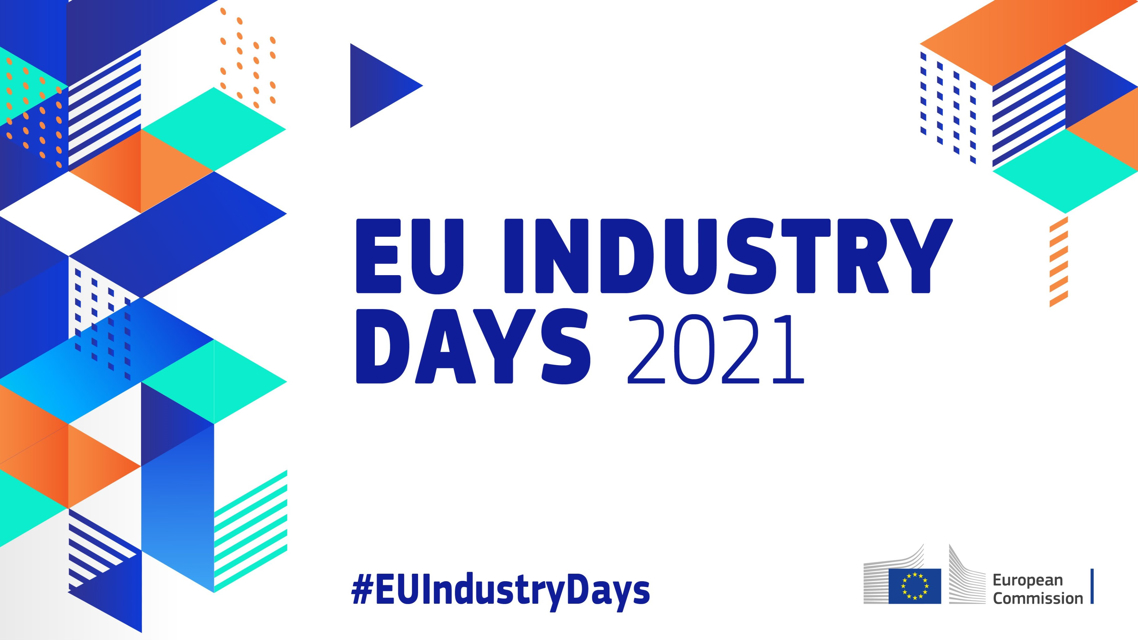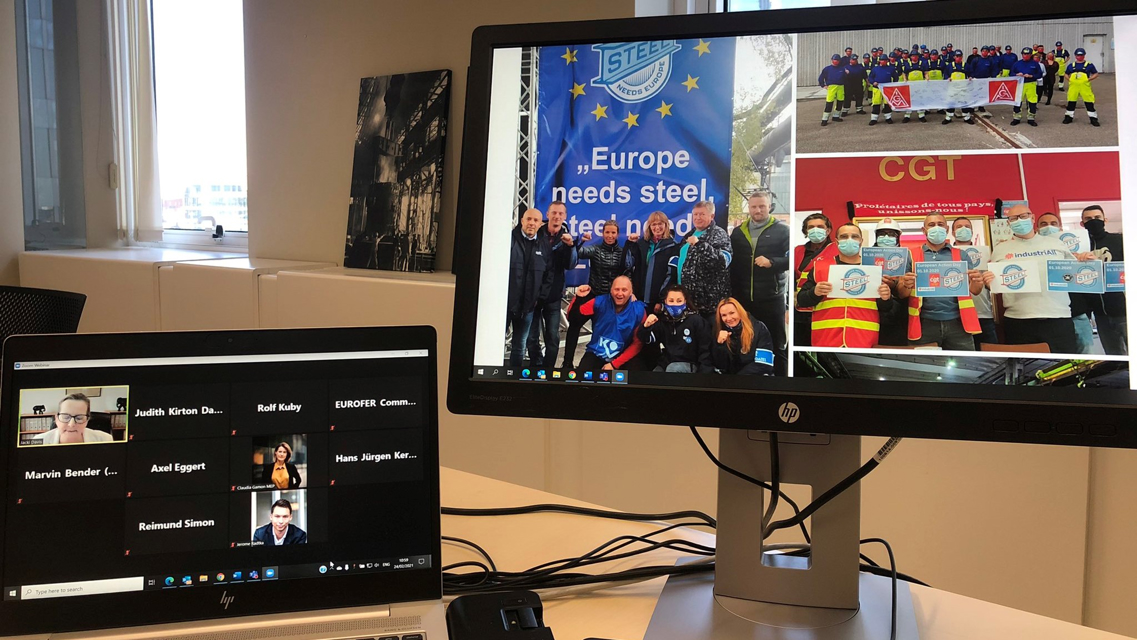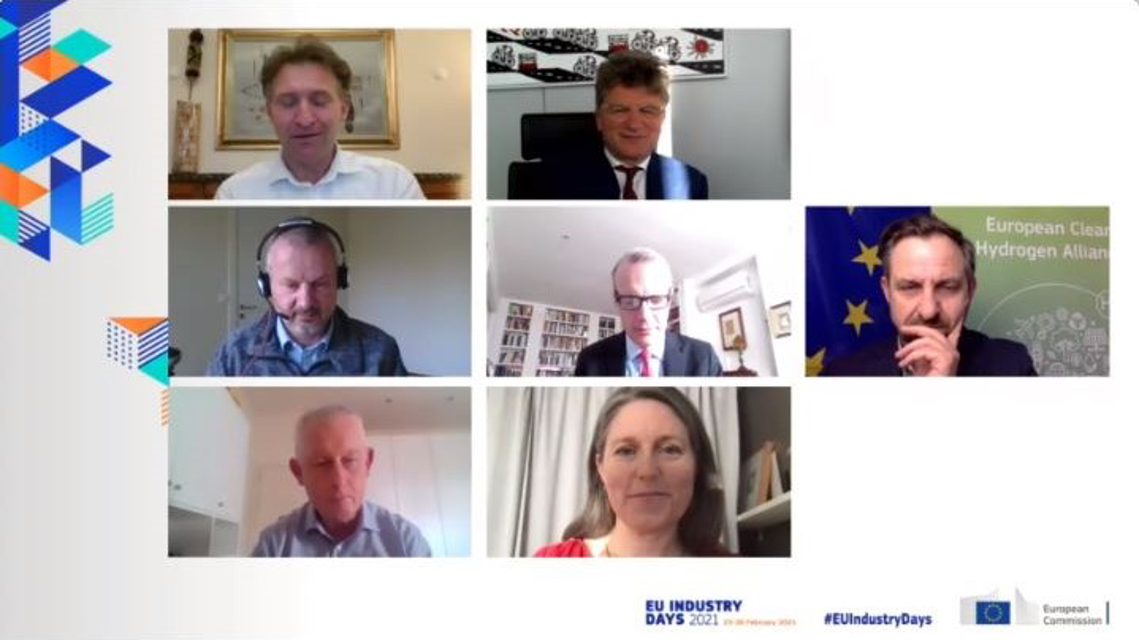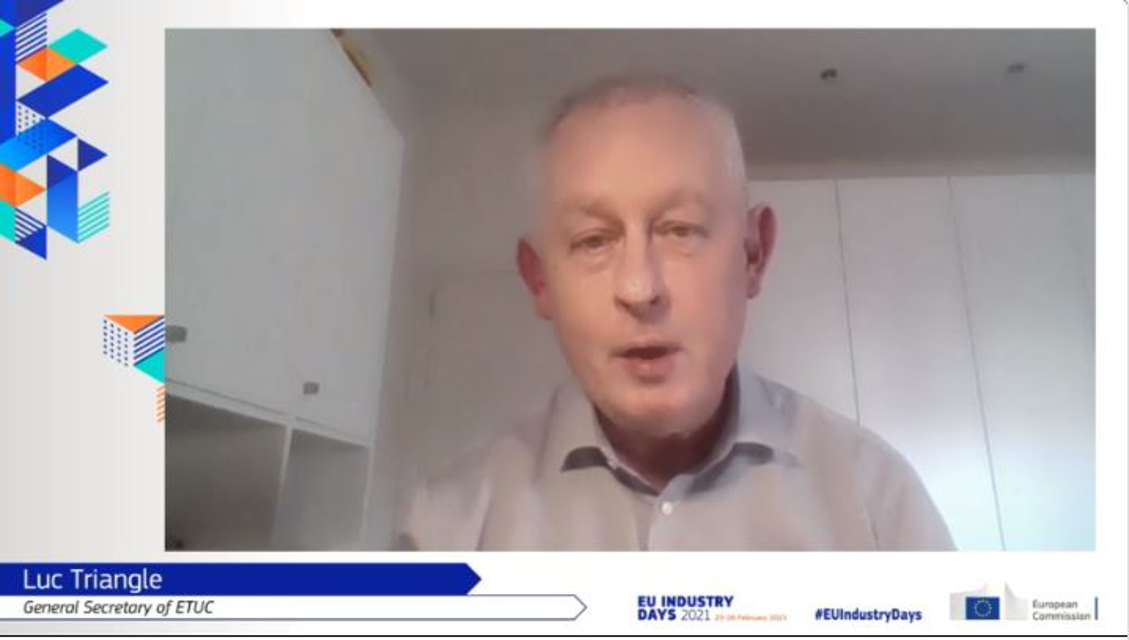The 2021 edition of the EU Industry Days - Europe’s annual flagship event, and a main platform of the European Commission for an open stakeholder dialogue on industry - took place from 23-26 February. It focused on how the European industrial strategy can contribute to a greener, more digital and resilient industry.
IndustriAll European Trade Union was a major contributor to the EU Industry Days 2021, intervening in various panels and hosting a session of its own, that addressed the challenges faced by industrial workers in Central and Eastern European heavy industries resulting from the transition to a low-carbon economy. Our principal concern was to secure the interests of industrial workers in the transformation, and to insist on the need for social dialogue, a comprehensive industrial policy, a forward-looking skills policy and supporting every worker and every region (Just Transition) in the transition as the keys to achieve the EU’s climate and economic ambitions.
The Green Deal and European Steel
IndustriAll Europe participated in a ‘local event’ organised by steel employers EUROFER, and the German Steel Federation (WV Stahl), under the umbrella of EU Industry Week 2021. The event focused on the German Steel Action Concept – a national tripartite initiative on the steel industry – and the need for a European Steel Action Plan.
The strategic importance of the steel industry in Europe, the need for a Green Deal for Steel and the vital importance of a socially Just Transition was emphasised by Diederick Samson (Head of Cabinet of European Commission Executive Vice-President, Frans Timmermans). IndustriAll Europe’s Deputy General Secretary, Judith Kirton-Darling, set out the campaign that European steelworkers have been running over the past year for such a European Steel Action Plan.
Judith Kirton-Darling stressed, “The social dimension of the Green Deal and the Just Transition must not be a periphery issue. The added value of the German Steel Action Concept is found in the tripartite process which brought employers, unions and all branches of government together to agree a common strategy. This needs to be replicated at European level and it is increasingly urgent. This decade will determine if Europe manages to deliver a Just Transition or faces greater deindustrialisation, which will be destabilising economically, environmentally, socially and politically.”
In the EU Industry Days session ‘Transition to safe and sustainable chemicals – Opportunities and Challenges’, industriAll Europe General Secretary, Luc Triangle, discussed the future of the chemical industry and chemical substances with representatives of the European Commission’s Directorate General Internal Market, Industry, Entrepreneurship and SMEs, the European Chemical industry Council, WindEurope, Hydrogen Europe and the International Chemical Secretariat.
The goal is to phase out hazardous substances, but the route is unclear. The concepts of ‘essential uses’ and ‘safe and sustainable by design’ especially need clarification. Luc Triangle: “Sustainability has three dimensions: environmental, economic and social. It is crucial that every decision taken on chemicals must be based on an impact assessment that takes all three into account.”
The Chemicals Strategy for Sustainability describes a fundamental shift in chemicals management. This will only work if trade unions and their social partners are involved in the implementation from day one.
Luc Triangle: “Workers are the innovators that can drive the change; they will be the ones to implement new rules and put new processes into practice. Good education, timely training and supportive employment conditions are crucial.”
The importance of skills
The need for training and skills development was discussed in a session on the Pact for Skills – an initiative launched by the European Commission in November 2020 to incentivise public and private organisations to join forces and take action to upskill and reskill working age people in Europe.
IndustriAll Europe Deputy General Secretary, Isabelle Barthès, participated in this session, insisting that timely and adequate training has become even more crucial, given that the COVID-19 pandemic has amplified the digital and green transformation of industry. She concluded: “We need to train more workers, better and faster, to ensure that people are keeping pace with developments.” Isabelle Barthès further highlighted the role of social dialogue: “The Pact for Skills brings all stakeholders together to meet this training challenge. It is clear though that social partners must occupy a central role. They are best placed to identify skills needs and to organise upskilling and reskilling.”
Contact: Andrea Husen-Bradley (press and communication)




.JPG?width=1200&height=640&rmode=max&format=jpg&quality=100)